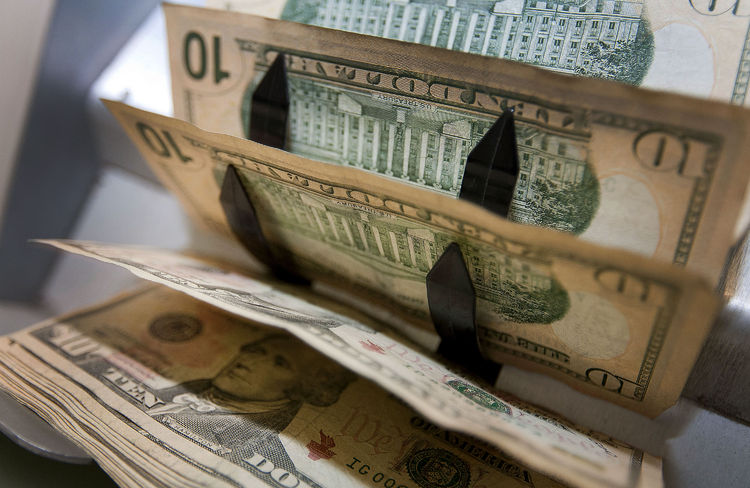- External Reserves Chalk up $1.26bn as Shale Oil Threat Persists
The accretion of Nigeria’s foreign exchange (forex) reserves has continued, as figures released by the Central Bank of Nigeria (CBN) have shown that reserves had grown by $1.263 billion this quarter to $31.551 billion as of August 16, compared with the $30.288 billion on June 30.
This signified a steady improvement in the country’s current account balance, despite the threat from rising shale oil production in the United State of America.
The growth in reserves was also influenced by the drop in militancy in the Niger Delta and rising oil exports, which have led to an improvement in the country’s foreign exchange earnings.
Improved crude earnings have also been reflected in the amount of funds disbursed by the Federal Account Allocation Committee, which climbed to N3 trillion to the three tiers of government in the first six months of the year, figures compiled shown.
The amount shared by the three tiers of government was significantly higher relative to the N2 trillion allocated to them in the first half of 2016.
A breakdown of the disbursement showed that the federal government got N1.216 trillion from the Federation Account in the first half of 2017, higher than the N854 billion it was allocated in the comparable period in 2016, while the states received N798 billion in the first six months of 2017, higher than the N701 billion in the comparable period in 2016.
Local government areas, on the other hand, got N599 billion in first half of 2017, higher than the N429.4 billion they received between January and June last year.
Oil prices rose sharply on Friday, as the benchmark Brent crude rose by $1.69 to $52.72, while U.S. crude was virtually flat on the week.
Meanwhile, a report by Financial Derivatives Company Limited (FDC) showed that U.S. shale production was expected to climb 117,000bpd to 6.14mbpd this quarter, stressing the need for the federal government to be more aggressive in its revenue optimisation programme, including blocking of leakages.
“In an increasing shale production world, oil is expected to trade within a range of $40-60 per barrel between 2017-2022. But as we all know there is no way of accurately forecasting oil price futures.
“In this scenario, Nigeria will need to be more aggressive in its revenue optimisation programme, including blocking of leakages. The whistle blowing policy aimed at retrieving stolen funds and improving transparency is a step in the right direction to achieving revenue growth,” the FDC, in a report, added.
Nigeria’s oil production has risen from 1.2mbd to about 2mbd since the cessation of militant attacks on oil and gas installations in the Niger Delta.
This has seen the Organisation of Petroleum Exporting Countries (OPEC) and non-OPEC producers, led by Russia, approving the decision of the federal government to cap Nigeria’s oil production at a sustainable volume of 1.8mbd.


 Forex3 weeks ago
Forex3 weeks ago


 Naira2 weeks ago
Naira2 weeks ago
 Billionaire Watch2 weeks ago
Billionaire Watch2 weeks ago




 Naira2 weeks ago
Naira2 weeks ago




 Naira2 weeks ago
Naira2 weeks ago




 Naira1 week ago
Naira1 week ago




 Naira4 weeks ago
Naira4 weeks ago




 Naira3 weeks ago
Naira3 weeks ago





















